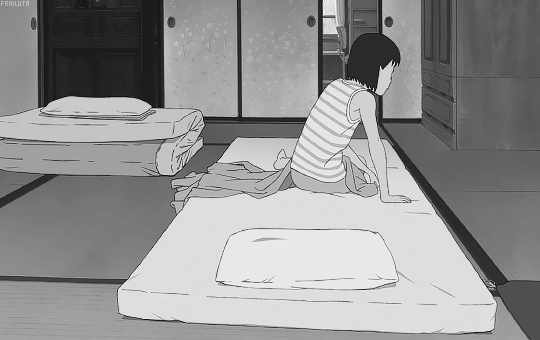#escapism
This post is in response to someone’s query about the difference between using little space as an escape/coping mechanism, and using it to hide from reality. And honestly…it’s a good question.
Let’s start by defining the key terms here:
- “Littlespace” is generally accepted to be a mental state in which an individual regresses in behavior or mental patterns to a more youthful, and generally more carefree mindset, often taking on personality traits and mirroring interests that are more in keeping with a younger individuals’ interests or patterns.
- “Escapism” is a tendency or behavioral pattern that involves avoiding or trying to distance oneself from uncomfortable or unpleasant thoughts or experiences by ‘escaping’ into other things, like littlespace, fantasy, a book, etc.
- “Avoidance” is a huge term to define, but the way that I’m using it here is to explain someone who is not trying to distance themselves from something in order to gain new energy, perspective, or comfort, but rather as a term that means someone is trying to distance themselves from a problem or situation so much so that they simply hope they can completely ignore it, and hope it’s taken care of by someone else, or that it goes away on its own. Effectively, I mean ‘avoiding the problem instead of dealing with it’.
With that on the table, let’s talk about something that I think might be scary and hard to admit for many littles, and scary to even think about for many caregivers, who are afraid that their little might sometimes do this.
SOMETIMES, LITTLESPACE IS USED IN AN UNHEALTHY WAY IN ORDER TO FORCE A CAREGIVER OR SOMEONE ELSE TO DEAL WITH A LITTLE’S PROBLEMS, INSTEAD OF CONFRONTING THEM DIRECTLY.
Why might that be? Well, escapism is a normal thing most people do…we find hobbies, we love genres of movies or books, we escape into games or tales of adventure and fantasy, or even just obsess over sports so we can ignore the million little questions running through our minds. That, actually, can be very healthy. It’s not necessarily a good idea to spend 24/7 going after everything you want to fix in your life and pushing back with ferocious obsession. In fact, more often than not, that ends up being pretty exhausting, counterproductive, and unhealthy in and of itself. And that’s how the majority of littles use littlespace to de-stress. They find themselves in a situation or position where they want to regress not just because of a caregiver (though it helps) but because life might make them feel like the ‘true’ person on the inside, their little personality, needs to help out sometimes, and give them a break from stress. IN THAT CASE; Escaping into littlespace, into that more vulnerable and yet almost contradictingly-carefree headspace can be a great escape that gives balance and comfort to someone who is struggling with stress and worry.
However, when it’s used for avoidance of life, littlespace can be a problem.
I’m NOT judging people who live 24/7 or close to 24/7 lifestyles, nor am I saying people who use littlespace to deal with stress are weak, doing something wrong, etc. What I AM saying, however, is that far more often than may be wise, some littles develop a coping mechanism for stress that involves always regressing when faced with trouble, to the point where they struggle to handle any situation as an adult, or without relying almost entirely on their partner. This puts excess stress on their caregiver, this puts them in a position where they are viewed and often feel as though they are unable to take control of their own life, and it makes it so they can often lose their own healthier traits that assist in dealing with life’s many troubles.
So what’s the difference between the two? What’s the difference between escapism and avoidance behavior? Sadly, I don’t have a magic clear-cut line to differentiate the two. Even healthy people use avoidance behaviors at times, and that’s not necessarily a big deal. But if you (a little) or your little (speaking to the caregivers as well) is someone who is unable to deal with life, and often feels powerless, empty, hopeless, or espouses a need to completely empty themselves of responsibility or choices in favor of littlespace…you might want to talk. Figure out what’s going on, and why you/they feel the way you/they do. And do so now. Because it’s harder to break a bad habit once it becomes something you’re accustomed to than to simply avoid creating the bad habit at all!
Regards,
-Scribbler
Everyones mad at escapism. It could’ve been muchworse
It could’ve been 11 minutes of Ronaldo delaying everything for 11 minutes
Have fun with that thought.
“This POV film is pure escapism. Let me take you on an immersive journey through the outdoors. Find me along the path and follow me to the edge of the valley.“
WatchWanderlust: https://kimcums.com/wanderlust-video-picset/
Read more about Wanderlust: https://kimcums.com/wanderlust-behind-scenes/
Post link

It be like that.
Even though things have absolutely not gone back to normal, I want to start posting again. Tumblr has always been that little fun, self-indulgent corner of the internet for me where I can rant about nerdy stuff and gush over fanart/fanfiction and I miss it. I miss looking at pretty things, reblogging posts that tickle my geeky heart and forget about the ‘real’ world for a while.
My thoughts are still with the people of Ukraine and everyone else affected by this war. I’ll still post about it but I will also indulge in random content again. It keeps me sane.
From my main blog. A sentiment that I’ll also implement here.
Do you ever have such a bad day at work that you have to imagine your favourite fictional character kidnapping you from it just to wind down? Because same.

Sweet Escape (Pisces-Astrology/Zodiac Series)
Pisces is last (but not least) on the zodiac wheel, a water sign usually represented by two fish swimming in a circle. Neptune is generally regarded as their ruling planet with a touch of Jupiter. Pisces are natural escape artists, (thanks to the 12th house,) highly emotional and intuitive, likely to retreat into their imagination while maintaining a romantic hopeful nature. Keep swimming.
Post link
Escapism:

1. seeking to escape from reality
2. seeking to escape from reality by form of books
▪️your readers want to escape from the worry and unpleasantness of life.
▪️keep this in mind and you’ll write great stories that your readers won’t be able to put down.
This is especially easy if you add suspenseto your book.
How to create suspense:
▪️start scenes and chapters with urgency
Example:
Molly woke up.
She yawned and stretched and moseyed into the kitchen to make her cereal.
She found her favorite kind (cinnamon toast crunch) and poured it into a bowl with milk.
Now, she sat down in front of the window to watch the morning birds pecking the ground.
Let’s say someone is about to break into Molly’s house and kidnap her. Well… your readers will probably never make it to find out because this scene started out with no promise and no urgency what so ever. It’s just a boring morning routine that no one wants to hear.
Let’s try it another way…
Molly woke up with a strange feeling in her gut.
The house was quiet and she remembered that her parents had left on vacation.
Maybe she was just nervous about being alone. Yeah, that was it.
She started breakfast but the feeling wouldn’t leave her so she decided to lock all the windows and bolt the front door.
But the strange feeling persisted.
Suddenly, she remembered that she had forgotten to lock the basement door.
She sat down her bowl of cereal and slowly headed down the dark stairs…









I know school is supposed to be over soon but I can’t take it anymore guys
Sun and snow
#photography #nature #photocosma #winter #art #artistsoninstagram #fantasy #fairytale #forest #sunset #atmosphericvisuals #environment #wanderlust #picoftheday #ethereal #magic #magicalnature #wonderland #escapism
https://www.instagram.com/p/CHl0v0ih9Sm/?igshid=uhluv011hpc5
Post link



Commercial sheet music from the film score of “Palmy Days” (1931)
J. R. R. Tolkien, undisputedly a most fluent speaker of this language, was criticized in his day for indulging his juvenile whim of writing fantasy, which was then considered—as it still is in many quarters— an inferior form of literature and disdained as mere “escapism.” “Of course it is escapist,” he cried. “That is its glory! When a soldier is a prisoner of war it is his duty to escape—and take as many with him as he can.” He went on to explain, “The moneylenders, the knownothings, the authoritarians have us all in prison; if we value the freedom of the mind and soul, if we’re partisans of liberty, then it’s our plain duty to escape, and to take as many people with us as possible.“
Stephen R. Lawhead
"I have claimed that Escape is one of the main functions of fairy-stories, and since I do not disapprove of them, it is plain that I do not accept the tone of scorn or pity with which ‘Escape’ is now so often used. Why should a man be scorned if, finding himself in prison, he tries to get out and go home? Or if he cannot do so, he thinks and talks about other topics than jailers and prison-walls?”
-J.R.R. Tolkien
“Hence the uneasiness which they arouse in those who, for whatever reason, wish to keep us wholly imprisoned in the immediate conflict. That perhaps is why people are so ready with the charge of "escape.” I never fully understood it till my friend Professor Tolkien asked me the very simple question, “What class of men would you expect to be most preoccupied with, and hostile to, the idea of escape?” and gave the obvious answer: jailers.“
-C.S. Lewis
While we’re swinging for the fences, here’s Lewis Lapham pondering the unfathomable immensity of the cosmos: “Isn’t that kind of the fun, the looking into the vast darkness ripe with wonders that will never cease? The limitless expanse of human ignorance … rouses out the love of learning, kindles the signal fires of the imagination. We have no other light with which to see and maybe to recognize ourselves as human … To bury the humanities in tombs of precious marble is to deny ourselves the pleasure that is the love of learning and the play of the imagination, and to cheat ourselves of the inheritance alluded to in Goethe’s observation that he who cannot draw on three thousand years is living hand to mouth. Technology is the so arranging of the world that it is the thing that thinks and the man who is reduced to the state of a thing. Machine-made consciousness, man content to serve as an obliging cog, is unable to connect the past to the present, the present to the past. The failure to do so breeds delusions of omniscience and omnipotence.”
This and more in today’s culture roundup.
(Image Credit: Autopsy of the First Crocodile, Onboard, Upper Egypt, by Ernest Benecke)
Post link
It’s not just that the concept of Western civilization is bankrupt, racist bullshit … it’s that it’s much fresher bullshit than you might think. Kwame Anthony Appiah provides an excellent primer: “European and American debates today about whether Western culture is fundamentally Christian inherit a genealogy in which Christendom is replaced by Europe and then by the idea of the West … If the notion of Christendom was an artifact of a prolonged military struggle against Muslim forces, our modern concept of Western culture largely took its present shape during the Cold War. In the chill of battle, we forged a grand narrative about Athenian democracy, the Magna Carta, Copernican revolution, and so on. Plato to Nato. Western culture was, at its core, individualistic and democratic and liberty-minded and tolerant and progressive and rational and scientific. Never mind that premodern Europe was none of these things, and that until the past century democracy was the exception in Europe—something that few stalwarts of Western thought had anything good to say about. The idea that tolerance was constitutive of something called Western culture would have surprised Edward Burnett Tylor, who, as a Quaker, had been barred from attending England’s great universities. To be blunt: if Western culture were real, we wouldn’t spend so much time talking it up.”
This and more in today’s culture roundup.
(Image Credit: The Plumb Pudding in Danger, James Gillray)
Post link
Chabon, Lethem, Eggers, Saunders, Whitehead: the literary luminaries of the nineties made their names on a fantastical escapism, more determined to entertain than they were to provoke. Now that the world’s gone even more to shit, Sam Sacks wonders if their appeal has worn thin: “the central dilemma of the nostalgist’s aesthetic: Can a novelist both recapture the innocent pleasures of storytelling and at the same time illuminate the complex realities of experience? In stable and prosperous times, truth and entertainment can overlap. But periods of crisis wedge them apart, and being faithful to one compromises the other … I find myself missing ambivalence—a quality that rarely squares with entertainment. There must be precious few readers who don’t already feel well disposed to tales of World War II heroes, fugitive slaves, and Abraham Lincoln.”
This and more in today’s culture roundup.
(Ilustration: Nathan Fox)
Post link
Literature loves a hoax—the Daily itself may have perpetrated one as recently as yesterday, though you didn’t hear it from me. Clifford Irving, who’s responsible for one of the great written ruses of the past fifty years, isn’t given the credit he deserves as a creative liar. Paul Elie tells his story: “Irving, while living in Ibiza in 1971, concocted a bogus autobiography of Howard Hughes, the reclusive billionaire tycoon. Irving, a Manhattan-born author of three novels that had sold poorly, saw it as a low-risk, high-adrenaline stunt, a kick at the pricks of New York literary society. It was the kind of thing a writer could try and hope to get away with in the days before the Internet laid all—or most—fraudsters bare. That ‘stunt’ turned Irving into the Leif Erikson of literary hoaxsters. (The forged Hitler Diaries would not appear until the 1980s.) Irving got advances upward of $750,000 from McGraw-Hill; fooled the publisher, handwriting experts, and Life magazine’s editors; and stirred the publicity-loathing Hughes to comment—all of which seems to surprise him even now. ‘I was a writer, not a hoaxer. As a writer, you are constantly pushing the envelope, testing what people will believe, and once you get going you say, They believed that; maybe they’ll believe this … ’ ”
This and more in today’s culture roundup.
(Image Credits: By Nick Cunard/Rex/Shutterstock (Lehrer), Alberto E. Rodriguez/Getty Images (Albert), Schiffer-Fuchs/Ullstein Bild/Getty Images (Frey), Steve Helber/A.P./Rex/Shutterstock (Erderly), from Bettmann/Getty Images (Irving, Cooke).)
Post link









